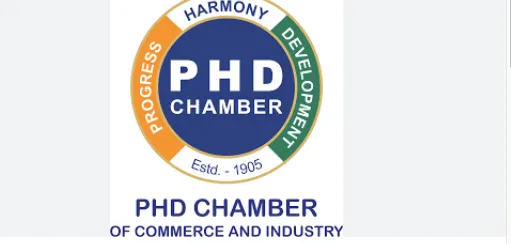Srinagar, Jul 15: In a step aimed at improving the ease of doing business (EODB) in Jammu & Kashmir, A.P. Vicky Shaw, Chairman of PHD Chamber of Commerce and Industry (PHDCCI), Kashmir, held a high-level meeting with the Centre’s Task Force on Deregulation and Compliance Reduction, led by K.K. Pathak, Special Secretary, Cabinet Secretariat, Government of India.
The meeting was attended by senior officials, including Vikramjit Singh, Commissioner Secretary, Industries & Commerce, J&K; Khalid Majeed, Director Industries & Commerce, Kashmir; and Arun Manhas, Director Industries & Commerce, Jammu, along with other key stakeholders.
During the meeting, Vicky Shaw submitted a detailed set of actionable recommendations aimed at reforming Jammu & Kashmir’s regulatory framework and enhancing its EODB rankings. He emphasised the need for time-bound reforms with measurable outcomes to address persistent bottlenecks and create a more business-friendly environment in the Union Territory.
Among the suggestions presented were the establishment of a unified single-window clearance mechanism for all approvals and schemes, and streamlining of the compliance process—particularly easing the procedures for obtaining NOCs from the Pollution Control Board and expediting feasibility and power sanctions from the Power Development Department. Shaw also underlined the importance of ensuring the availability of developed industrial land, forming special purpose vehicles (SPVs) in industrial estates, and opening Town Planning Scheme zones in a phased manner. He further called for rationalising CLU charges and updating land-use classifications in the Master Plan.
On urban infrastructure and construction-related concerns, Shaw proposed increasing Floor Area Ratio (FAR) and ground coverage, introducing flexible Right of Way norms, and harmonising Master Plans across the region. He advocated industry-specific reforms such as unified national registration for construction equipment, exemption from redundant inspections for off-road machinery, single-window clearance for private educational institutions, and reforms to ensure fee regulation for budget schools. A state-level empowered committee was also recommended to steer education sector reforms.








